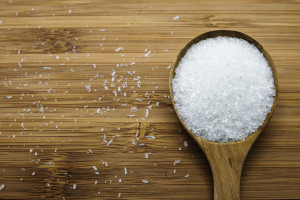While known addictive drugs like cocaine, heroin, and alcohol pose the greatest risk to our physical and psychological health, there are substances that the general public uses on a daily basis which carry some risk for dependence or addiction. Here are four such substances.
Cough Syrup
Even over-the-counter cough syrup can become addictive if you aren’t taking the recommended dosages under the proper circumstances. OTC cough syrup typically contains dextromethorphan, which can be extremely addictive in high dosages. When taken in large quantities, dextromethorphan can produce euphoria, dissociative effects, or even hallucinations. Prescription-grade cough syrup, meanwhile, typically contains codeine, which can produce relaxation and euphoria when consumed at higher-than-prescribed dosages.
MSG
Monosodium glutamate, also known as MSG, is one of several sources of glutamate, an amino acid often used in processed foods to enhance flavor and impart a more savory taste. You’ll find it in chips and crackers, fast foods, soups, canned foods, processed meats, gravies, and more. It’s likely in more foods than you even realize, as it often hides under disguised names on ingredients labels. The glutamate in MSG activates pleasure centers in the brain and actually has addictive properties. When you couple hunger with MSG’s addictive potential, you have a substance that you may very well start consuming more and more of on a daily basis.
High-fructose Corn Syrup
High-fructose corn syrup (HFCS) is a chemically manufactured sweetener, made by converting corn’s naturally occurring glucose into fructose, which is far sweeter. It is extremely common in processed foods, and you’ll find it in cereal, cookies, crackers, yogurts, breads, baked goods, condiments, juice, soft drinks, and more. Some studies have shown that HFCS consumption produces many of the hallmarks of drug addiction, including intense cravings, an inability to control use, preoccupation with the substance, and withdrawal symptoms. Some researchers even believe that it produces a type of reward in the brain that surpasses even that of cocaine. (This, of course, is still a highly debated assertion.)
Caffeine
Caffeine might give you a burst of energy and increased alertness, but it is still a psychoactive drug, and its effects mean that you are susceptible to developing a dependence on it with chronic use. If you stop using caffeine abruptly after regular use, you might experience headaches, fatigue, anxiety, irritability, depressed mood, or difficulty concentrating. Caffeine dependence isn’t nearly as problematic as dependence or addiction on other addictive drugs, but it is still a substance to be cautious about using.









